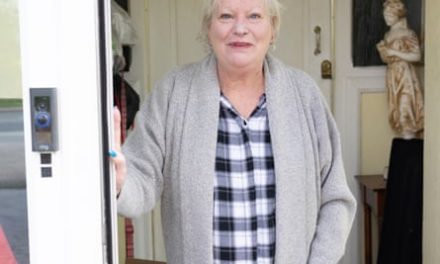The Home Office’s “routine” housing of unaccompanied child asylum seekers in hotels is unlawful, the high court has ruled.
The charity Every Child Protected Against Trafficking (Ecpat) brought legal action against the government department over the practice of housing unaccompanied children in hotels, claiming the arrangements were not fit for purpose.
In a ruling on Thursday, Mr Justice Chamberlain said the routine use of hotels for unaccompanied asylum-seeking children had become unlawful, as the power to place the children in hotels was only intended to “be used on very short periods in true emergency situations”.
He told the court in London: “It cannot be used systematically or routinely in circumstances where it is intended, or functions in practice, as a substitute for local authority care.”
The judge continued: “From December 2021 at the latest, the practice of accommodating children in hotels, outside local authority care, was both systematic and routine and had become an established part of the procedure for dealing with unaccompanied asylum-seeking children.
“From that point on, the home secretary’s provision of hotel accommodation for unaccompanied asylum-seeking children exceeded the proper limits of her powers and was unlawful.
“There is a range of options open to the home secretary to ensure that unaccompanied asylum-seeking children are accommodated and looked after as envisaged by parliament. It is for her to decide how to do so.”
As of 17 July, there were 208 child asylum seekers being accommodated in hotels. The children-only hotels were located in Kent, East Sussex, London, Oxfordshire and Warwickshire.
Since 3 April, 447 children had gone missing from asylum hotels, mostly within 72 hours of arriving in the UK. The hearing was told that 154 children were still missing, mostly 16- and 17-year-olds, but also 11 children aged 15, a 14-year-old and a 12-year-old.
Ecpat’s case was heard alongside similar claims brought by Brighton and Hove city council and Kent county council against the department.
The Home Office and the Department for Education had opposed the legal challenges and said the hotel use was lawful but was “deployed effectively as a ‘safety net’ and as a matter of necessity”.
In a 55-page judgment, Chamberlain said: “Ensuring the safety and welfare of children with no adult to look after them is among the most fundamental duties of any civilised state.”
As well as finding the Home Office’s use of hotels for child asylum seekers was unlawful, the judge said Kent council was acting unlawfully in failing to accommodate and look after unaccompanied asylum-seeking children.
He said: “In ceasing to accept responsibility for some newly arriving unaccompanied asylum-seeking children, while continuing to accept other children into its care, Kent county council chose to treat some unaccompanied asylum-seeking children differently from and less favourably than other children, because of their status as asylum seekers.”
Chamberlain said the use of hotels could not be seen as an emergency measure given the length of their use and that the home secretary had been accommodating children in hotels for more than two years.
“It may be that, in June and July 2021, the home secretary could plausibly have contended that the commissioning of hotels was intended and functioning as an emergency measure,” Chamberlain said.
after newsletter promotion
“It is much more difficult to make that case after September 2021, when she agreed the Kent protocol, which formalised the cap on the numbers of unaccompanied asylum-seeking children that Kent county council would accept, against a common understanding that any unaccompanied asylum-seeking children who arrived when the cap had been reached would be accommodated by the home secretary in hotels.
“She and Kent county council may well have hoped that it would not be necessary to use hotels, but it rapidly became clear that this intention was not being realised.”
The judgment reaffirmed the legal duties owed by local authorities to all children who require looking after, irrespective of their immigration status.
During the hearing it was revealed that in September 2021 the Home Office and Kent county council set up an unpublished agreement known as the Kent protocol, which agreed a cap on the numbers of newly arrived lone asylum-seeker children the council would take. Kent has accepted it breached its statutory duties towards this group of children but said it found itself in an impossible situation.
The judge found the policy to be unlawful both on the part of the council and the home secretary.
The judge also ruled that the national transfer scheme, which allows children to be placed in local authority care through a rota system, was enforceable by the home secretary by judicial review if individual local authorities were not taking their fair share of children.
Patricia Durr, the chief executive of Ecpat UK, said: “This judgment powerfully reaffirms the primacy of the Children Act 1989 and our child welfare statutory framework, which does not allow for children to treated differently because of their immigration status.
“It remains a child protection scandal that so many of the most vulnerable children remain missing, at risk of significant harm, as a consequence of these unlawful actions by the secretary of state and Kent county council.”
Join the exciting world of cryptocurrency trading with ByBit! As a new trader, you can benefit from a $10 bonus and up to $1,000 in rewards when you register using our referral link. With ByBit’s user-friendly platform and advanced trading tools, you can take advantage of cryptocurrency volatility and potentially make significant profits. Don’t miss this opportunity – sign up now and start trading!







Recent Comments